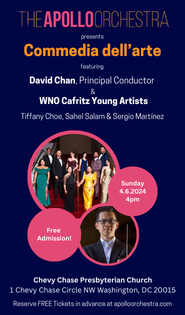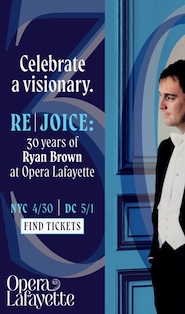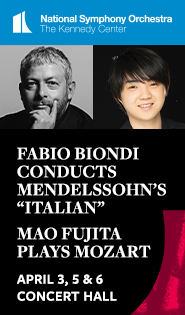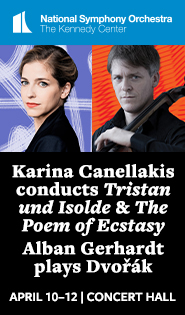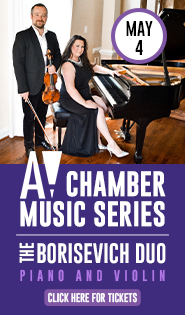Fujita and Biondi make wonderful Mozart together with NSO
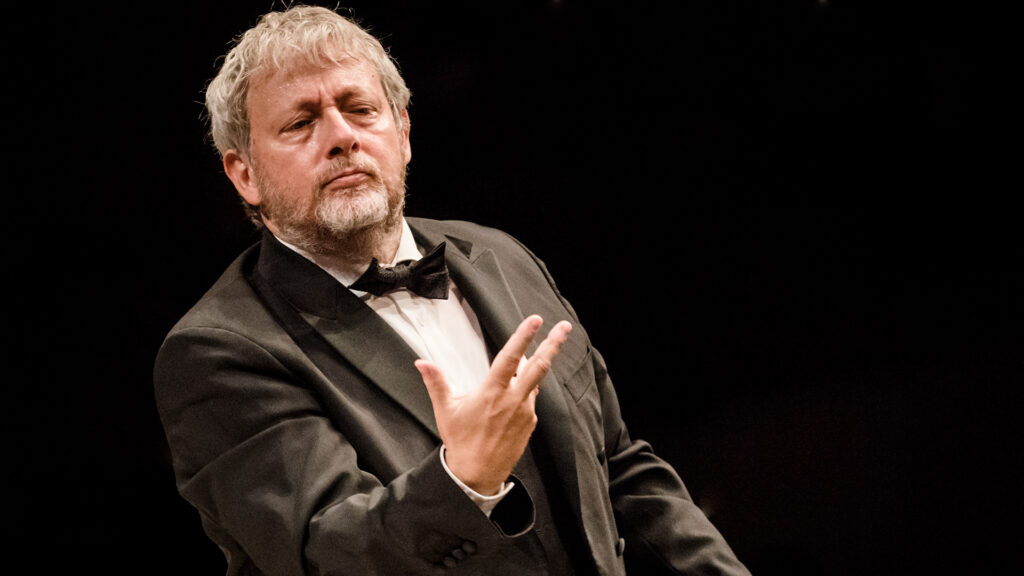
Fabio Biondi conducted the National Symphony Orchestra Thursday night at the Kennedy Center.
As fine as Gianandrea Noseda’s performances with the National Symphony Orchestra have been this season, the ensemble’s selection of guest conductors continues to impress as well. Fabio Biondi, founder of the exemplary early music ensemble Europa Galante, took the reins Thursday night. Heard in the Kennedy Center Concert Hall for the first concert since the NSO’s Florida tour last month, the program showed the Italian conductor’s reach beyond music of the classical period, into the early romantic.
Mozart’s Piano Concerto No. 25, featuring the noteworthy NSO debut of Mao Fujita, stood out as the highlight of the evening. The Japanese pianist, now 26, won a silver medal at the Tchaikovsky Competition in 2019 and has received critical acclaim in recent solo appearances. A gracious touch at the keyboard, delicately weighted but with a singing tone, gave his interpretation of this challenging concerto, a delectable elegance.
Biondi, a fine Mozartian, helped the NSO shape the lengthy orchestral exposition of the first movement with refinement. Fujita, hunched over the keyboard, snuck into the closing bars of this introduction, carefully enunciating each of the movement’s themes, with exceptional clarity.
Since Mozart left no surviving cadenza for the movement, Fujita surprised with a virtuosic escapade of his own composition. In a more expansive, even romantic vein, he reeled off thick chordal textures, aching harmonic sequences, and an extended treatment of the movement’s melodic ideas.

Mao Fujita performed Mozart’s Piano Concerto No. 25 with the NSO Thursday night.
The slow movement featured a lovely serenade between the NSO and Fujita, especially the exposed moments combining the piano, in richly decorative complexity, with the woodwind section. Biondi did not quite start off the third movement cleanly, but the NSO and Fujita quickly lined up together in a joyous performance of this happy dance-like rondo. The soloist dashed off the roulades leading back to the theme’s return with remarkable confidence.
Rather than a movement from his highly regarded complete recording of Mozart’s piano sonatas, released in 2022, Fujita offered an encore that could have been included in his more recent recording devoted to the prelude but was not: Federico Mompou’s Prelude No. 5, played with smoky, atmospheric lassitude.
With a larger selection of string players on the second half, Biondi led a performance of Mendelssohn’s Fourth Symphony (“Italian”) that abounded in colorful variety. An energetic but not overcharged first movement bounced in a convincing tempo, followed by a stately second movement, with excellent ensemble unity even in softer and smaller combinations of instruments, an evocation of a liturgical procession the composer witnessed in Naples.
Early music conductors are often associated with absurdly fast tempos, a stereotype that Biondi seemed intent on contradicting. The third movement, a flowing but moderately paced triple-meter dance, felt especially introspective and self-contained. The trio section featured ultra-refined horn playing, reined in so that the more powerful brass did not overwhelm the delicate lines in the flutes and violins.
The gentle third movement provided a pleasing contrast to the concluding Saltarello, given an urgency of tempo that sizzled in the strings, played with little vibrato. Gossamer woodwind lines floated amid the texture, given space to sound cleanly. All in all, this was Mendelssohn informed by a historical performance specialist’s care for articulation and dynamic shaping.
The evening’s only minor disappointment was the opener, Robert Schumann’s rarely heard Overture to Julius Caesar. This was more the composer’s fault than the conductor’s, as Biondi took a slow enough tempo to give this underwhelming piece a solemn feeling. Trumpets and horns exchanged fanfare motifs effectively, but this lightweight score did not provide enough heft to make it worth hearing.
The program will be repeated 8 p.m. Saturday and 3 p.m. Sunday. kennedy-center.org
